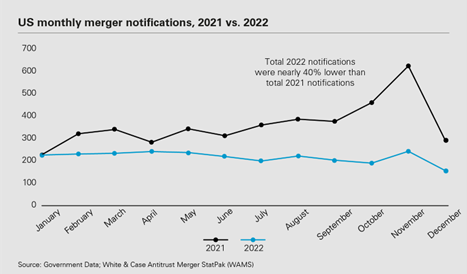Oral Hearing in the Preliminary Injunction Proceedings Concerning the FIFA Football Agents Regulations (FFAR)
Report on the hearing at the Higher Regional Court of Düsseldorf (OLG Düsseldorf)
on 21 February 2024
Introduction
“We don’t really know what the LG Dortmund should have done wrong.”
Presiding judge at the beginning of the hearing
“Oh boy, when it starts like this already…” the representatives of FIFA and the DFB must have thought. The introduction to the Senate’s preliminary legal assessment in an oral appeal hearing could hardly have been clearer – or more unfavourable from the perspective of the aforementioned sports associations. From the outset, the chairman left little doubt that the Senate intends to follow the Regional Court (LG) of Dortmund (judgement of 24 May 2023, 8 O 1/23 (Kart)) in its competition law assessment of the new FIFA Player Agent Regulations (FFAR).
Only “little doubt” for two reasons: The first reason is that the Senate, in its preliminary legal assessment, was not yet able to consider the content of a written submission of over 150 pages (+ attachments) made by FIFA’s (new) lawyers (Dr Sarah Milde, Dr Albrecht Conrad and Dr Malte Frank, all Hengeler Mueller) at fairly short notice. The second reason could end in a huge disappointment (not only) for all sports competition lawyers: The OLG Düsseldorf is the first court that could consider the judgements in the cases “Royal Antwerp Football Club” (C-680/21), “European Superleague” (C-333/21) and “International Skating Union” (C-124/21 P) announced on 21 December 2023 in its decision. Unfortunately, however, the presiding judge stated – at the very end of the hearing – that the Senate would only consider the aforementioned judgments once the official German translation was available. Of course, the official court language in Germany is German (Section 184 GVG). However, apart from the three recent decisions, the ECJ has not commented on sports antitrust law since 2006 (Case C-519/04 P – Meca-Medina). Taking additionally into account that the aforementioned decisions can certainly be characterised as a disruption, one might have expected the OLG to take a look at the English versions of these decision. But perhaps the German translations will arrive in time: The Senate will pronounce its judgement on 13 March 2024.
In any case, the influence of the new ECJ judgements was clearly noticeable in the statements made by the party representatives. The “Wouters doctrine” (also known as the “Meca-Medina-test”), which had previously played an important role in almost every sports antitrust case and almost every relevant publication, was not mentioned at all. This is probably due to the fact that the ECJ – surprisingly for the vast majority – “clarified” in the three aforementioned judgements from last December that the exception to article 101 (1) TFEU established in the “Wouters” case and transferred to the sports sector in the Meca-Medina case does not apply on by-object restrictions but only on by-effect restrictions. Accordingly, the discussion at the oral hearing before the OLG Düsseldorf focussed primarily on the statements of the LG Dortmund, which considered all of the challenged provisions of the FFAR to be a restriction of competition by object. But first things first: What was the hearing all about? About…
The new FIFA Football Agents Regulations (FFAR)
In its ruling of 25 May 2023, the Dortmund Regional Court issued an interim injunction at first instance prohibiting FIFA and the DFB from applying or implementing the new FIFA Football Agents Regulations (FFAR). FIFA’s new player agent regulations, which came into force successively on 9 January and 1 October 2023, contain far-reaching regulations for the profession of player agent, including, inter alia, a general licensing obligation, a fee cap, accompanying regulations on payment modalities and processing, extensive disclosure obligations regarding personal information and information regarding remuneration paid, as well as an obligation for player agents to submit to the association’s regulations. National football associations are obliged to implement the FFAR in their own regulations.
All over the world, players’ agents have taken and are taking legal action against the FFAR and its national implementations and have sometimes been more (see, for example, the interim injunction of the Juzgado de lo Mercantil número 3 de Madrid of 6 November 2023 or the FA Rule K arbitration award of 30 November 2023) or less successful (see in particular the CAS arbitration award of 24 July 2023). Two preliminary ruling procedures (Regional Court (LG) Mainz – C-209/23) regarding the FFAR and Federal Court of Justice (BGH) – C-428/23) regarding the DFB player agent regulations) are currently before the ECJ for a decision. Some member state courts rejected applications for interim injunctions due to a lack of urgency. Not so the LG Dortmund, which categorised the FFAR in its entirety as a restriction of competition by object and prohibited its application and implementation by an interim injunction. In the following, for the sake of clarity, the decision of the LG Dortmund will only be discussed insofar as it was addressed in the oral hearing. See in detail to the LG Dortmund decision, for example, Lichtenberg, FIFA’s Football Agents Regulation Violates Competition Law, Kluwer Competition Law Blog of 20 July 2023.
In the meantime, FIFA has announced to its member associations that it will suspend the FFAR until a final decision is made by the ECJ (Circular no. 1873 of 30 December 2023, available for example via the LinkedInby Federico Venturi Ferriolo), but only insofar as the regulations are affected by the LG Dortmund decision. FIFA still appears to be adhering to the licensing obligation, as can be seen from a further communication to the member associations (Circular no. 1874 of 10 January 2024).
Clear case of by-object restriction or superficial assessment by the LG?
The question discussed between the parties before the LG Düsseldorf regarding the requirements for proving an intended restriction of competition is of fundamental importance. Sarah Milde accused the LG Dortmund of superficiality in this regard in two respects: The Regional Court did not differentiate neither between the individual defendants in the injunction (FIFA on the one hand, DFB on the other) nor between the concrete FFAR regulations in question, but rather derived the inadmissibility of the other regulations from the allegedly by-object restrictive fee cap. Furthermore, according to the FIFA lawyers, the LG Dortmund did not sufficiently consider the – strict – requirements to be met in order to prove a by-object restriction of competition according to ECJ case law.
Does Sarah Milde have a point here? Indeed, the Regional Court of Dortmund only comments rather briefly on some of the challenged FFAR provisions. The ECJ also emphasises in its three new rulings on sports antitrust law, with reference to its established case law, that high requirements must generally be placed on the proof of a by-object restriction (see, for example, “European Superleague” – para. 161 et seq.; “ISU” – para. 101 et seq.; “Royal Antwerp Football Club” – para. 88 et seq.; on the relevant ECJ case law prior to the new sports antitrust decisions, see for example Lichtenberg, FIFA’s Football Agents Regulation Violates Competition Law, Kluwer Competition Law Blog of 20 July 2023).
The representative of the players’ agents, Dr Markus Wirtz, on the other hand, pointed out that, in his view, the most recent ECJ rulings on sports antitrust law indicate otherwise: “European Superleague” and “ISU” show that regulations that reinforce an intended restriction of competition can reinforce their anti-competitive purpose, meaning that the regulations must be considered in their overall context. In fact, the ECJ states in “European Superleague” (para. 177) that the regulations that prohibit clubs and players from participating in unauthorised third-party events, subject to sanctions, reinforce the anti-competitive purpose of a system of prior authorisation of third-party competitions that is already anti-competitive in itself. In “ISU” (para. 221 et seq.), the ECJ ascribes to the obligation to submit to sports arbitration an effect that reinforces the anti-competitive purpose of the ISU authorisation rules.
Taking into account the latter, the – albeit in part brief – statements of the LG Dortmund should perhaps already fulfil the requirements of the ECJ for proof of a by-object restriction, especially as the LG Dortmund, in its assessment, also refers to the 100% market coverage: The FFAR ultimately lead to a worldwide standardisation of the demand for player agent services and considerably limit the agent’s freedom of action on the market. However, it would not be surprising (much rather desirable) if the OLG Düsseldorf were to go into the individual FFAR regulations in more detail than the LG Dortmund considered necessary.
Other controversial points: International jurisdiction and “suspension” of the FFAR, advantages of the FFAR for players’ agents and players?
The lawyers became somewhat entangled in the “small details” of the international jurisdiction of the LG Dortmund, which was questioned by the FIFA representatives. The LG Dortmund had derived its jurisdiction from article 5 of the Lugano Convention, according to which the court of the place where the harmful event occurred or threatens to occur has jurisdiction in the event of a tortious act. Recourse to the Lugano Convention was necessary because FIFA, as the defendant in the injunction, has its registered office in Switzerland and the parallel provision of Art. 7 No. 2 Brussels Ia Regulation is therefore not applicable. However, the presiding judge paid little attention to this point. Right at the beginning of the hearing, he pointed out that the Senate considered that it had international jurisdiction and did not comment further on the submissions of the parties’ representatives.
There was also a brief but controversial discussion of the fact that FIFA has now declared that it will suspend the FFAR – with the exception of the licensing obligation – which was probably lined out more detailed in FIFA’s short-time submission (see above I.). In contrast to FIFA’s representatives, the lawyers of the players’ agents unsurprisingly took the position that FIFA’s announcement of the suspension of the FFAR did not – in terms of civil procedure law – eliminate the urgency required for the issuance of a preliminary injunction (see sections 935, 940 German Code of Civil Procedure – ZPO) or – in terms of substantive law – the requirements for injunctive relief pursuant to section 33 para. 2 ARC. It would be rather surprising if FIFA were to prevail with this argument at the OLG Düsseldorf. In its announcement on the suspension of the FFAR (Circular no. 1873 of 30 December 2023, see above I.), FIFA expressly states that the suspension is merely intended to comply with the interim injunction issued by the LG Dortmund: “In order to comply with the Injunction, FIFA will suspend the implementation of the FFAR for any transfer which has a link to the European Union.” Furthermore, FIFA’s announcement is not legally binding, meaning that the international association could decide to lift the suspension of the FFAR at any time. A settlement could therefore only be considered if FIFA were to sign a binding cease-and-desist declaration.
On behalf of the DFB, its representatives (Dr Martin Stopper, David Bischoff, Lentze Stopper) argued that, with regard to their client, there was no risk of first offence, especially not after the suspension of the regulations by FIFA. Furthermore, the DFB representatives pointed out that the DFB had not yet issued own national player agent regulations on the basis of the FFAR, but had merely quoted from the FFAR. For the same reasons as stated with regard to FIFA, the DFB is also unlikely to be able to convince the Senate. If FIFA were to decide to (re)implement the FFAR, the national associations’ obligation to implement the FFAR would also apply.
Finally, Sarah Milde argued that the LG Dortmund had not sufficiently considered possible advantages of the FFAR for players’ agents and for the protection of players, which, in the opinion of the association representatives, should be taken into account when weighing up the interests at stake. The latter point was not discussed in detail at the hearing. The FIFA representatives also did not go into any further detail as to what specific advantages the FFAR would bring for players’ agents and players.
In a Nutshell
- According to the Senate’s statements in the oral hearing, it would not be surprising if the Senate, should it not suspend the proceedings until the request for a preliminary ruling made by the LG Mainz is decided by the ECJ, were to follow the statements of the LG Dortmund in its decision.
- The Senate’s preliminary assessment is subject to the twofold proviso that – firstly – the Senate has not yet been able to take into account an extensive short-notice submission by FIFA’s representatives in its assessment and – secondly – the ECJ judgements in the “Royal Antwerp Football Club”, “European Superleague” and “International Skating Union” cases have not yet been taken into account because their official German translation is not yet available.
- Meca-Medina was not mentioned at all during the hearing.
- The announcement date has been set for 13 March 2024, 09:30 a.m. in room 208.
* In the proceedings concerning the admissibility of the DFB player agent regulations under competition law before the Federal Court of Justice (BGH, case no.: KZR 71/21), the author was involved in the preparation of an expert opinion commissioned by the plaintiffs. This article exclusively reflects the author’s personal legal opinion and his personal impression of the oral hearing at the Higher Regional Court of Düsseldorf on 21 February 2024.




